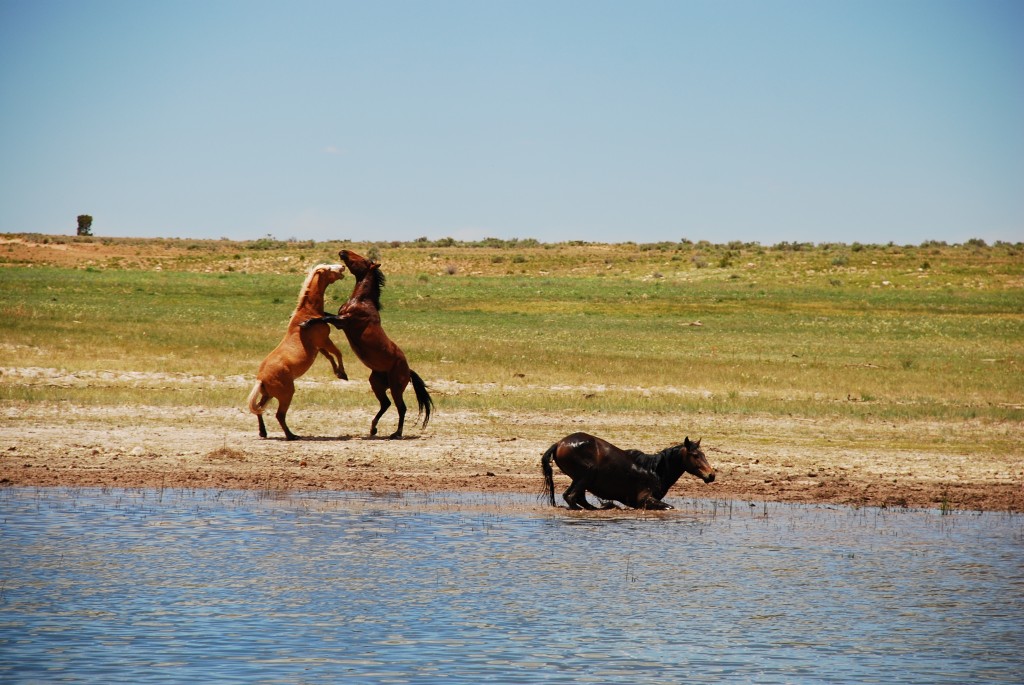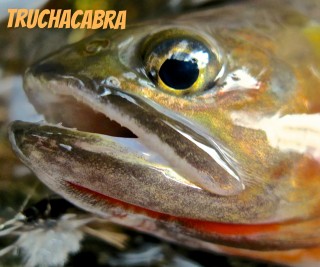It would be a sane and intelligent day if the resources and effort expended on feral horses were used instead to restore the ecosystems they’ve destroyed.
Erosion in the west has reached cancerous proportions, impairing the land’s ability to store and yield water for plant, animal, and human consumption. It’s well documented that vegetation removal by large grazers precipitates erosion, especially when a forage base is not allowed adequate time to recover from browsing events and hoof shear. Trails made by herds capture surface water runoff, channeling its energy to create gullies, which lower water tables. Drying ensues, leaving plants vulnerable to further erosion by water and wind.
In the case of domestic livestock, land managers and stockgrowers can collaborate on a range of options to manage overgrazing. No matter what one’s opinion might be of the BLM, Forest Service, or ranchers, these all-purpose whipping boys for whatever ails our lands are adapting to modern realities in some pretty impressive ways. Strategic stocking rate adjustments, rest and rotation timing, and infrastructure design and placement are known to minimize harmful grazing. Most important, well-managed grazing can actually be used as a land healing tool.
In contrast to almost every animal on the planet – thanks in part to zealot-born legislation essentially protecting them as endangered species – wild horses have no predators, and their large size eliminates competition from other grazers. Managing horses to benefit habitat is practically impossible, certainly as long as sound ecological analysis plays second fiddle to the nostalgia of groups like the American Wild Horse Preservation Campaign. Contrary to what Deniz Bolbol seems to believe, an “emotional attachment” to something doesn’t by itself justify that thing; we learned this during our recent national conversation about the legitimacy of the Confederate flag as a constructive symbol of southern heritage.
Significantly accelerating erosion by themselves, feral horses place direct pressure on western ecosystems already compromised by more than a century of abuse, to the detriment of amphibians, reptiles, mammals, birds, and fish.

Man, there goes the “neigh”borhood!
Horses also contribute to land management conflict. Ignorant hunters blaming predation instead of food scarcity for reduced antelope and deer populations destroy coyotes and other important predators. Then there’s the poisoned dialogue between land use interests that has given rise to Bundy-style reactionaries and the unfair conflation of hysterical horse advocacy with science-driven and truly beneficial conservation. Basically everyone – hunters, coyotes, cowboys, and environmentalists – gets a bad rap but the horses.
It is urgent that we restore our landscapes to mitigate the threats posed by climate change. We must rebuild our soils and cover them with native plants. We must manage land for the ecological services we need it to provide: water retention and filtration, carbon sequestration, biodiversity and pollination, among other benefits. If feral horses can’t be managed in a manner that advances this imperative, we mustn’t continue to allow them to hold it back.
As a nation, we have sometimes done well to aggressively address the negative impacts of invasive species. For the sake of wildlife in the Everglades, we are attacking pythons in Florida, bought as pets and released into the wild. We’re leveling salt cedars along the Rio Grande and other key waterways. Through sterilization, euthanasia, and adoption, we must be equally decisive in dealing with feral horses, for as Deniz Bolbol herself has put it, “We yearn for that wildness…[but] slowly, we obliterate all that is wild.”
